Hiraeth, a solo music project, seeks to capture the profound emotions encompassed by the Welsh word, representing a yearning for a distant or nonexistent home, the bittersweet nostalgia and longing for places lost in the tapestry of one’s past.
1. Can you tell us about your background and how you first got started in music?
I’ve always been a very creative person, but I don’t really have an extensive history as a musician. When I was in middle school, I was in chorus but didn’t continue once I got into high school. At about fifteen, I taught myself very basic guitar which consisted of mostly power chords and reading tablature as opposed to proper sheet music. From there on, I dabbled here and there and eventually took guitar lessons for about a year and a half but didn’t take it very seriously. I experimented with songwriting but would easily get frustrated with it because I hadn’t found my unique sound or voice as an artist yet. I wasn’t sure what I wanted to say or express with music yet I knew I wanted it to be an outlet.
2. What inspired you to become a musician, and when did you realize that you wanted to pursue music professionally?
I’ve always been inspired by music in general because it has this ability to transfer emotions in a way that is different from other art forms. It can lift you up, make you feel less alone when going through hardships, or help you feel amped during a workout. With that said, I didn’t take music as an outlet seriously until about 2018 which is when I started the Hiraeth project. I was going through a lot in my personal life at the time, had awakened to the truth of the world around me about two years prior, and desperately needed an outlet to express the rollercoaster of emotions I was feeling. The first song I wrote was called “Ode To Redemption” and I wasn’t sure I was even going to share it. After a while, I just decided to create a YouTube channel (thinking no one would hear my songs anyway) because I realized that sharing the creation is, in my opinion, an important part of the creative process.
3. How would you describe your musical style and the genre(s) you identify with?
For some reason I always have a difficult time answering this question. I think that it can be very challenging to categorize your own music when you haven’t set out to create one specific style or genre. My music is definitely inspired by 90s nostalgia simply because that is the time I grew up in. But there is also an ethereal ghostly element, and I’m not really sure what style it reflects. For a while, I called it ghost folk, but with my latest album Woven there are more rock-infused elements thanks to Jeff Winston co-producing it with me. He added drums and bass which definitely elevated and evolved the sound from what it had been previously.
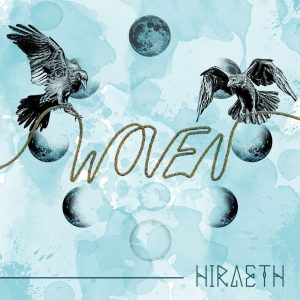
4. What is your songwriting process like? Do you have any rituals or routines that help you create music?
My process has become more of an intuitive exploration over the past few years. Starting out, I would come up with a 4-chord riff on the acoustic guitar, and just play that over and over until a vocal melody popped into my head. Then, I would repetitively hum the melody over the guitar until I started to think of lyrics. I started with the standard composition of verse, chorus, verse, chorus. As I became more comfortable with songwriting, I started to explore making beats with the midi controller, writing random lyrics here and there while I was driving or doing some other activity, and basically create a bunch of pieces. From there, I would try to fit them together like a puzzle. Sometimes it worked, and sometimes it didn’t but it’s always fun to try new things when it comes to exploring your own creative capabilities.
5. Who are some artists or bands that have influenced your sound and style over the years?
I think that everything I have ever listened to has influenced me to some degree whether I’ve wanted it to or not. I used to listen to a lot of grunge like Nirvana and Alice In Chains as well as other 90s music like Mazzy Star, Radiohead, The Pixies, and Portishead. My music tends to reflect a lot of those sounds and moods because of that. Other notable artists include Cat Power, She & Him, Lana Del Rey, Chelsea Wolfe, Daughter, Tool, Beach House, Agnes Obel, and Myrkur.
6. Can you share a memorable experience or pivotal moment from your musical journey so far?
One memorable experience would be playing my first ever live set at the White Art Collective music festival in 2021. I actually have really bad stage fright and was freaking out internally even though I had been practicing for months. Live performance is definitely out of my comfort zone but I’m so glad I did it. Everyone there was super supportive, and I had an amazing time regardless of how nervous I was. I formed friendships that I feel can last a lifetime.
7. What has been the biggest challenge you have faced in your music career, and how did you overcome it?
There have been a few challenges, so I find it hard to pick just one because they’re so different. As mentioned before, performing live in front of people is terrifying to me. I had to overcome that by just facing my fear and forcing myself to do it anyway. My performance was so far from perfect, but it didn’t matter because I was there amongst friends, supporters, and other artists who cheered me on and gave me the courage to keep playing. Besides that, production has been a massive challenge to me. Trying to get music to sound professional is incredibly difficult when you have no prior knowledge of the programs used to record, mix, and master it. My production skills have grown immensely, but there is always more to learn, and I don’t think I will ever know all there is to know about it.
8. Could you tell us about your latest album, Woven? What inspired its creation and themes?
The overall concept for Woven was inspired by tales of the Norns and the Fates from both Norse and Greek mythology. I wanted there to be a recurring theme of fate versus free will because it’s often hard to know just how much control you have over your own life and the circumstances you experience or what would have happened anyway regardless of the choices you made. There are also reflections of personal experiences throughout this album such as love, death or loss, and the struggle of navigating the vast ocean that is modernity. There are also tropes used that were inspired by more esoteric thought processes stemming from concepts found in alchemy and ancient Hellenistic astrology.
9. How do the lyrics in your songs capture the essence of “hiraeth,” particularly the yearning for a home that is unreachable or perhaps never existed?
Many of my lyrics come from that place of yearning that most of us feel in the modern age. We know that a sense of belonging is possible, yet we often feel stuck in an almost liminal space that leaves us feeling unsure of what direction to go in.
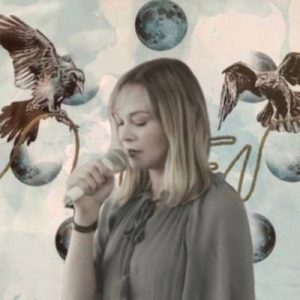
10. In which ways do the themes of nostalgia and longing for the past manifest in your music?
The themes of nostalgia are more expressed through the sound and the harmonies than anything else. The idea of longing for the past comes from that feeling that we have, in many ways, lost our sense of tribalism. A collective consciousness that still exists, even if it’s dormant, that can leave us feeling lonely and yet hopeful that the spark will reignite and we will feel that same sense of belonging that our ancestors did.
11. Are there any specific songs or lyrics in your repertoire that you feel particularly embody the emotions associated with the grief for lost places from one’s past?
The song “Home” from the album of the same title definitely embodies this. There are so many others that I hopefully capture and transfer this feeling in some way, but off of the latest album Woven, I’d say that “Gone But Not Forgotten” expresses this sentiment. It’s about losing a loved one, and this comes from the notion that it’s often not just a place that makes a home, but rather the people that surround us.
12. As a solo musician, how do you channel your personal experiences and emotions into your work to evoke the sentiments of “hiraeth” in your listeners?
This is a tough one to answer because it really isn’t a logical thing. My songwriting is mostly intuitive. I trust my gut instincts and hope that what I’m trying to express will translate. If I strongly feel something as I’m writing, or if it keeps getting stuck in my head even when I’ve temporarily stepped away from it, then I know that I am on the right track. I never know for sure how or if it will impact the listener, so I just create music that feels right to me and hope that someone that listens will get it and appreciate it.
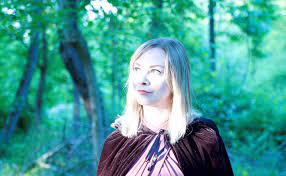
13. How do the recurring themes of rebirth and renewal found in your lyrics reflect the memory of a lost or unattainable home?
I think that these themes speak to the cyclical patterns in nature and that takes my mind down many rabbit holes of thought that inevitably lead back to that type of ancestral memory. This can broadly speak to the ages of mankind, the rise and fall of civilizations, as well as the search for that same sense of belonging that we have lost somewhere along the way. It’s like a type of blood memory. I know that this sense of home has existed before, and I also know that it’s not totally out of reach, yet we just aren’t there yet.
14. Can you discuss how the lyrics in songs like “Woven” and “Bloodlines” explore the connections between past, present, and future?
They both ultimately represent the notion of being able to transcend time by leaving a legacy through our bloodlines and our folk soul (for lack of a better term). In “Bloodlines,” I tried to speak more to the death and rebirth of the potential within a bloodline, with stanzas like:
The journey ends
A wordless command
Propelled by eternity
The new dawn beginsSong of our history
Currents flow within
Riverbanks of future kings
Inside our memory
“Woven” is a bit more cosmic and generalized, but I did revisit the same concept with the lines:
Transcending time and space
By blood, by name
Carved into stone
Then born again
15. How does the imagery of traveling, searching, and transitioning between different realms in songs such as “The Calling” and “Casting Shadows” convey the deep thoughts of a lost home or place?
“The Calling” is inspired by the idea of going off to war to fight for the future, yet having the roots already established to come back to. This can be envisioned by a woman telling her husband, “Go and fight for your truth, but know that I’m not going anywhere and I’ll still be here when you return.” In that way, “The Calling” is more about defending the home you have so that it won’t be lost on future generations.
“Casting Shadows” is more about finding something meaningful out of life and gathering the tools needed to lay down those roots in the first place. It’s also about the fact that even the brightest light casts a shadow and that no action is without consequence. This is just part of living and sometimes the toughest lessons or the most challenging experiences are the most necessary ones that lead to growth.
16. In what ways do your lyrics touch upon the idea of finding solace or healing in the face of the deep wistfulness and nostalgia, as seen in songs like “Gone But Not Forgotten” and “Some Kind of Lullaby”?
“Gone But Not Forgotten” is about losing a loved one and how hard that can be, but it’s also about how the memories of that loved one stay with you until it’s your time to pass, and maybe even beyond that. Knowing that these memories help to make up part of who you are is something that I think can be very comforting because in a way, it’s like that person is always with you.
“Some Kind Of Lullaby” is a song I wrote while imagining what I would say to someone as they’re growing into their winter stage of life and are scared of what comes after that. It’s essentially a lullaby for the elderly, reassuring them that part of them will live on forever in some way or another, whether it be from something eternal like their soul or spirit, or through the legacy of their children.
The lines:
Remembering the core truth of who you are
When the sun has set there’s still a flame in every star
are about the state of being that I believe happens once you pass away. I think there is a transitional period of existing as pure energy until you go on to the next phase, whatever that may be. Something I feel in my gut is that there is a fire that never burns out in all of us, and that’s something I do try to express often in music because I think people wouldn’t be so terrified of growing old and dying if they truly believed it.
17. In songs like “Inside and Out” and “A Culling,” how do you tackle the challenge of balancing the pining for the past while also acknowledging the importance of progressing into the future?
I think it’s important to recognize and learn from the past without getting stuck there and both of those songs speak to the necessity of moving forward in their own way. How did we end up here? What needs to change? What does the ideal future look like? How do we get there? These questions are all things I’ve consistently thought about. Connecting the past to the future through our actions in the present and personifying this idea through myths and folklore is something that has really fascinated me in the last five years. “Inside and Out” is more inspired by the myths of the Fates with a touch of hermetic and alchemical imagery, whereas “The Culling” is a bit more literal and ultimately represents the discipline needed to act in the present. Sometimes there needs to be a culling for something to grow and flourish.
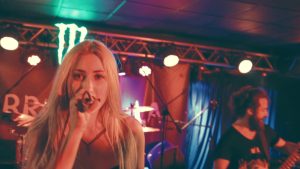
18. Are there any additional insights or messages you would like to share with your audience?
I mainly want to just say thank you to anyone who listens, appreciates, and gets something out of my music. That truly means so much to me and I am so grateful to have the support I have gotten. I also want to give a big thank you to all of you at Arktos for doing this interview. Some of these questions were very interesting, and I really appreciate the depth of thought it took to craft them.
If anyone is interested in checking out my latest album “Woven,” it is exclusively available on CD, digital download, and for streaming here. You can also follow me on Telegram and YouTube.
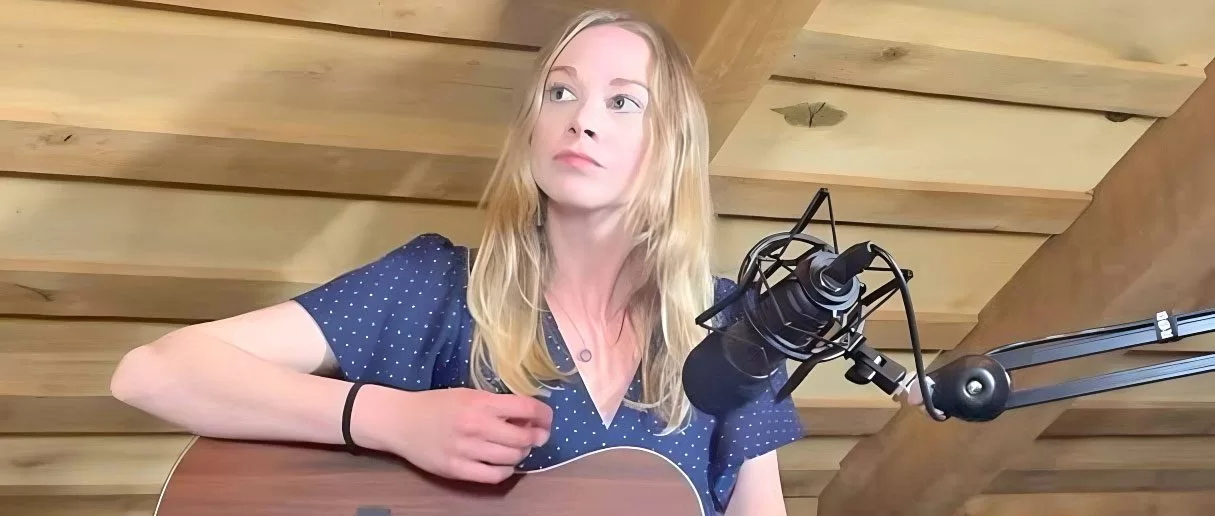






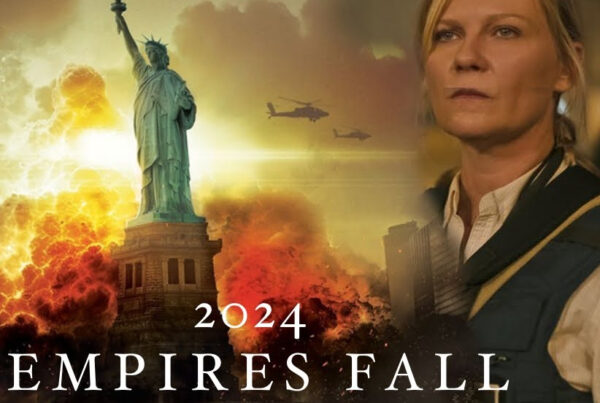


As a musician, I found the discussion interesting and I’ve looked into her music
Pretty interesting, though I prefer aggressive music.
I am curious about what is or was the White Art Collective?